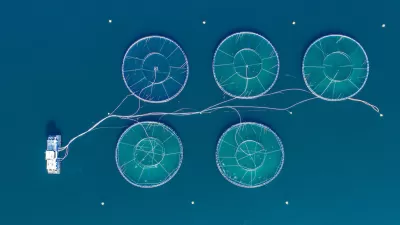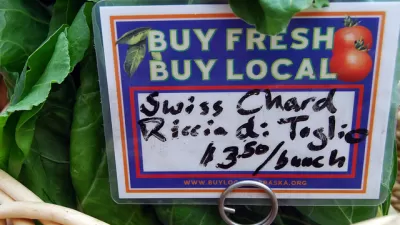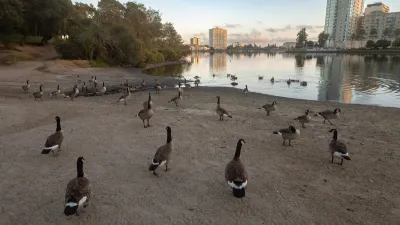Hope in the Water explores the groundbreaking work of dedicated fishers, aqua farmers, and scientists who are seeking to harvest aquatic species to feed our growing population while protecting the oceans.

Aquaculture, the farming of seafood in water, is gaining attention as a sustainable solution to meet the increasing global demand for seafood while protecting marine ecosystems. The new series "Hope in the Water" explores innovative practices in aquaculture, showcasing how fishers, farmers, and scientists are working together to harvest aquatic species sustainably. Hosts like Baratunde Thurston, Martha Stewart, and Shailene Woodley provide an inside look at various aquaculture practices, including scallop farming in Maine and kelp farming in Alaska.
One featured method is scallop farming, which avoids the harmful impacts of traditional dredging. In Maine, scallop larvae are collected in nets and grown in nutrient-rich waters until they are ready for harvest. This practice not only produces seafood sustainably but also preserves the ocean floor ecosystem. Similarly, kelp farming is being promoted to revitalize disappearing kelp forests, which are crucial for absorbing carbon dioxide and providing habitat for marine life. Organizations like the Native Conservancy in Alaska are leading efforts to establish seaweed farms that support both environmental health and local communities.
The series also delves into the cultivation of abalone and purple sea urchins at The Cultured Abalone Farm, where sustainable seaweed harvesting practices are employed to feed these species. By managing the population of purple sea urchins, which have overpopulated due to climate change and other factors, the farm aims to restore balance to marine ecosystems and promote kelp forest recovery. This approach illustrates how targeted aquaculture practices can address specific environmental challenges.
Hope in the Water highlights community-led initiatives and innovative strategies to enhance ocean conservation. Efforts like the establishment of No-Take Zones in Scotland and the diversification of fish catches in Puerto Rico and the U.S. demonstrate how local actions can lead to significant ecological and economic benefits. By showcasing these success stories, the series emphasizes the importance of sustainable aquaculture and community involvement in preserving marine biodiversity and ensuring food security for current and future generations.
FULL STORY: What is Aquaculture? An Overview of Sustainable Ocean Farming

Alabama: Trump Terminates Settlements for Black Communities Harmed By Raw Sewage
Trump deemed the landmark civil rights agreement “illegal DEI and environmental justice policy.”

Study: Maui’s Plan to Convert Vacation Rentals to Long-Term Housing Could Cause Nearly $1 Billion Economic Loss
The plan would reduce visitor accommodation by 25% resulting in 1,900 jobs lost.

Why Should We Subsidize Public Transportation?
Many public transit agencies face financial stress due to rising costs, declining fare revenue, and declining subsidies. Transit advocates must provide a strong business case for increasing public transit funding.

Wind Energy on the Rise Despite Federal Policy Reversal
The Trump administration is revoking federal support for renewable energy, but demand for new projects continues unabated.

Passengers Flock to Caltrain After Electrification
The new electric trains are running faster and more reliably, leading to strong ridership growth on the Bay Area rail system.

Texas Churches Rally Behind ‘Yes in God’s Back Yard’ Legislation
Religious leaders want the state to reduce zoning regulations to streamline leasing church-owned land to housing developers.
Urban Design for Planners 1: Software Tools
This six-course series explores essential urban design concepts using open source software and equips planners with the tools they need to participate fully in the urban design process.
Planning for Universal Design
Learn the tools for implementing Universal Design in planning regulations.
Caltrans
Smith Gee Studio
Institute for Housing and Urban Development Studies (IHS)
City of Grandview
Harvard GSD Executive Education
Toledo-Lucas County Plan Commissions
Salt Lake City
NYU Wagner Graduate School of Public Service





























